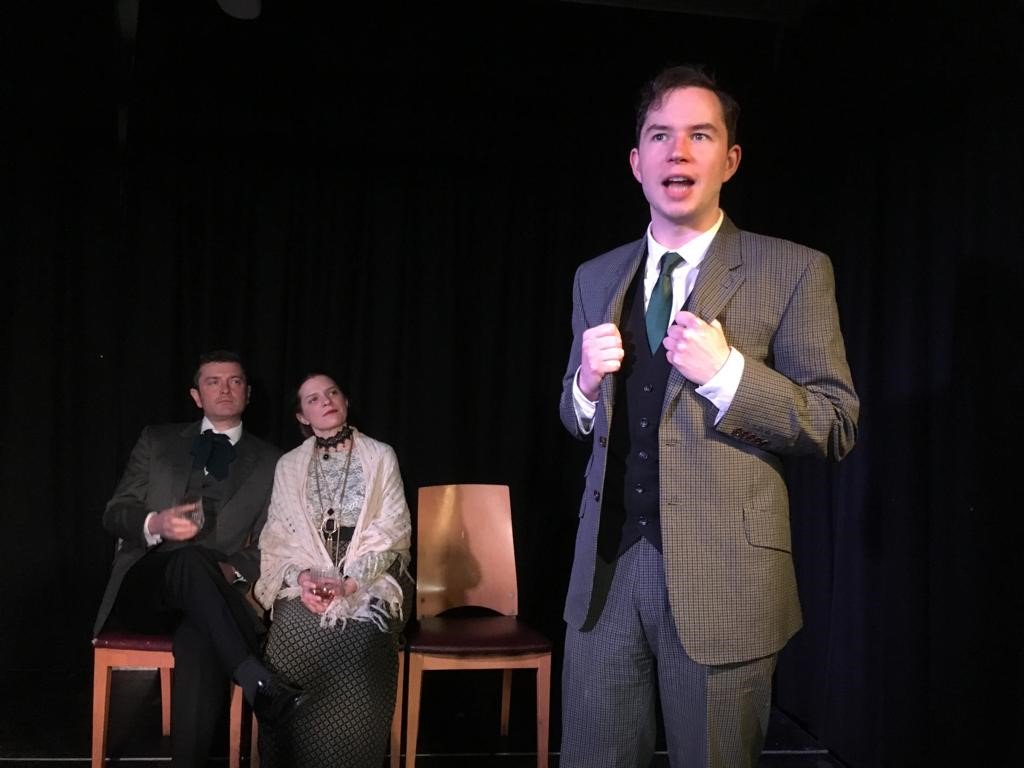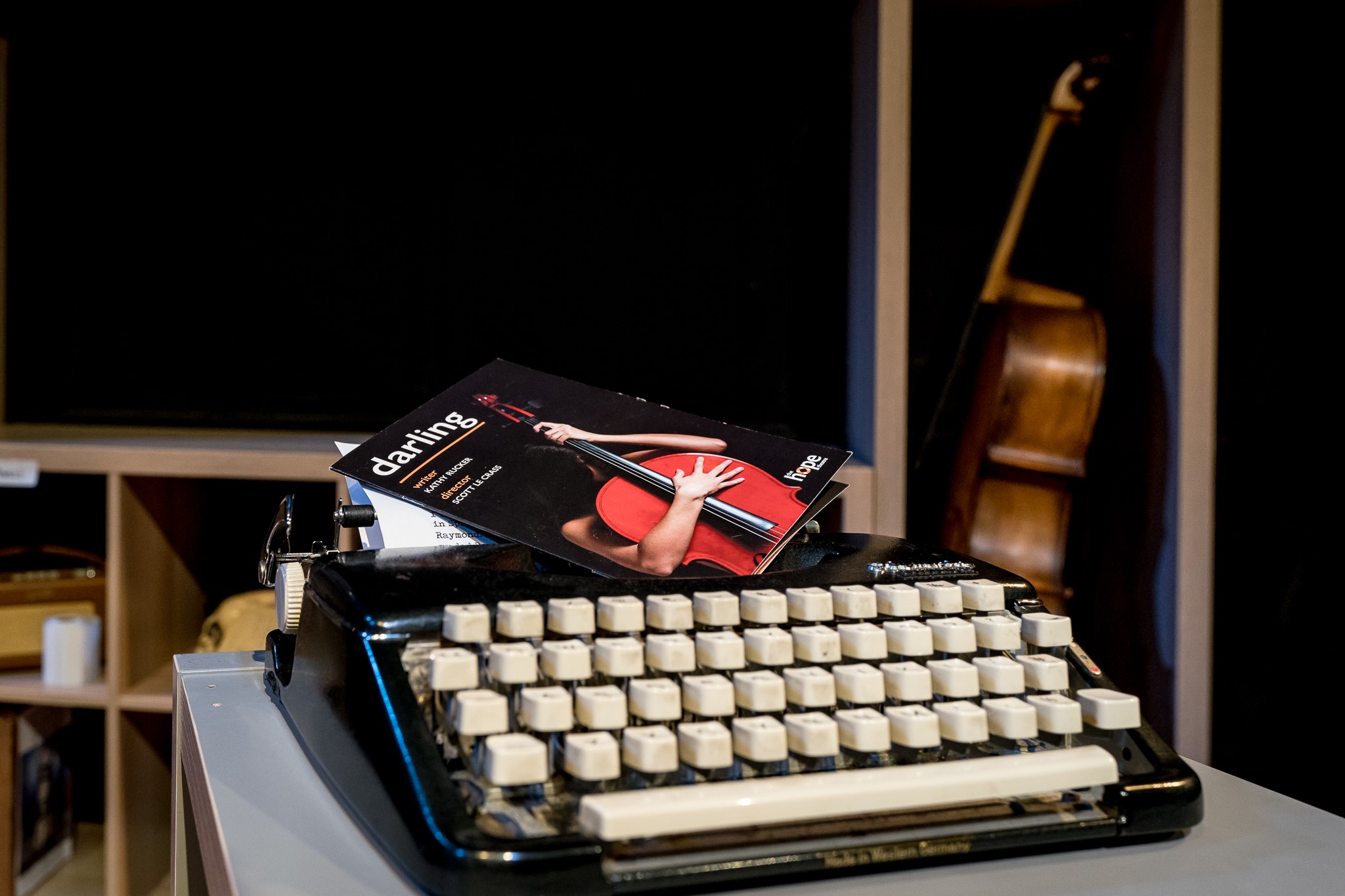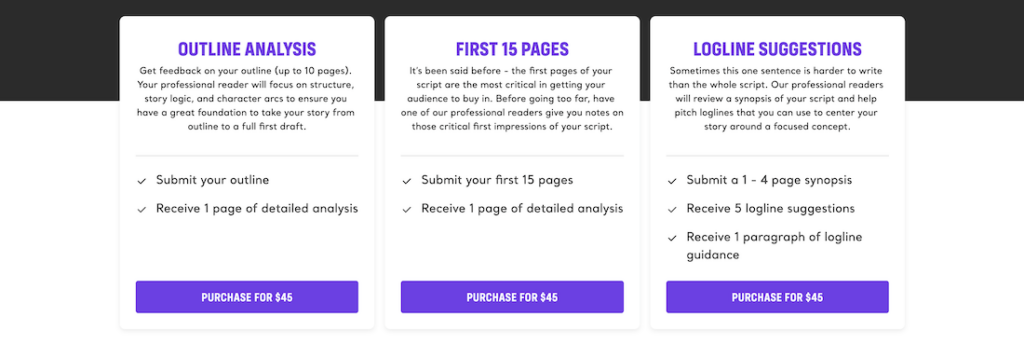William Goldman, a great screenwriter who was also a great screenwriting teacher, had much priceless advice for screenwriters, but probably the most priceless of all was that a screenwriter should always write something else: novels; short stories; anything other than just screenplays. That was because, as Goldman knew all too well (and he was the immensely successful screenwriter of Butch Cassidy and The Sundance Kid and All The President’s Men, among many others), the sheer grind of screenwriting, added to the sheer difficulty of ever seeing any screenplay filmed, would eventually wear a writer down, unless they had some other outlet for their creativity.
For most screenwriters, the obvious “other” form of writing is playwriting. There is an obvious similarity between the two, but also a crucial difference: it is much easier, quicker and cheaper to get a play produced than a screenplay.
Read More: Stage Plays vs. Screenplays: 7 Differences You Should Know About
Here are five 21st century plays that may not yet be as well known as they should be (and they are certainly less well known than the five 21st century plays that I recommended last year). Nevertheless, they are all superb. And they are particularly inspirational for screenwriters because they are all relatively small-scale, with small casts (one is actually a one-person show) and low production costs, demonstrating just how easy it is to produce your own play – so long as it’s supremely well written.
Got a great stage play? Enter it into the ScreenCraft Stage Play Competition!
1. Typical by Ryan Calais Cameron (2019)
Ryan Calais Cameron is not just the most successful young black British playwright but possibly the best young British playwright full-stop. He first came to prominence in 2018 with Queens of Sheba by Jessica L. Hagan, which he brilliantly adapted for the stage from her own incredible (and incredibly funny and perceptive) writing about misogynoir, the unique nexus of racism and sexism that dark-skinned black women face. More recently, he has had two plays running simultaneously in London in the spring of 2023: For Black Boys Who Have Considered Suicide When the Hue Gets Too Heavy, about six young black men meeting for group therapy; and Retrograde, based on a real-life drama that the great Sidney Poitier (the Ali of Acting) faced in fifties Hollywood.
However, the very best of all of Calais Cameron’s joyous, inventive and utterly theatrical works may just be Typical, his one-man show about the true story of a highly decorated black British military hero who nonetheless died in police custody after being the subject of a racist attack. In its fusion of poetry and drama, Typical is genuinely Shakespearean, but just in case that doesn’t sound like fun for non-Shakespeareans it also takes in the ridiculous (but perfectly observed) minutiae of dressing up for the night, the sexual politics of the dancefloor and tributes to great 90s pop, from Whigfield to the Spice Girls. In short, Typical is anything but; it is an absolutely atypical piece of poetic drama.

The Passion of the Playboy Riots
2. The Irish Play (or The Passion of the Playboy Riots) by Neil Weatherall (2017)
This is a play that I have seen all the way from inspiration to full production, having met its writer, Neil Weatherall, at a London writers group in the autumn of 2016 and then being stunned when he actually did what very few writers (myself included) ever do by writing and producing a play within six months, which has subsequently been a hit at the 2019 Edinburgh Festival and already become something of a staple of the London fringe theatre circuit.
The Irish Play (which was its original title and which I much prefer to its full title of The Passion of the Playboy Riots) is the story of early 20th-century Ireland as told through the formation and growing pains of the country’s national theatre, The Abbey, whose prime mover was the great Irish poet, W.B. Yeats. Weatherall takes us on a remarkable theatrical journey from backstage at what is little more than a school hall through to the formation and initial extraordinary success of The Abbey, taking in Yeats’s own romantic machinations and the fabled Easter Uprising of 1916.
The Irish Play may have been one of the many theatrical victims of the Covid pandemic, in that it really should have been performed worldwide to the Irish diaspora (or ‘Paddyaspora’) to mark the 100th anniversary of Irish independence in 2022. Nevertheless, it is so good that it genuinely bears comparison to a certain Shakespeare play known universally as “The Scottish Play.”
3. Darling, by Kathy Rucker (2019)
Kathy Rucker is a former film industry professional who eventually found her true love in theatre and so far she has expressed that love most successfully with Darling, a beautifully written little play about an epic mail fraud in the U.S. Midwest in the 1980s. It is a four-hander in which every one of the four characters is perfectly realized: Petey, a troubled young man who is possibly autistic before the term is widely known; his seriously ill father, who struggles to cope with Petey’s problems after the premature death of his wife; Angie, who is the pen-pal (note for younger readers: a pen-pal was someone who you exchanged letters with) who Petey pours his heart out to and sends what little disposable income he has; and Dave, “Angie’s” boyfriend and de facto controller, who writes the “love letters” that “Angie” sends to Petey and, it transpires, thousands of other lonely young men. Dave dreams of being a latter-day Ernest Hemingway, but in reality his literary gift is for fraud on an industrial scale.
In its meticulous depiction of a real-life, pre-internet scam, from initial inception through to its eventual collapse after Petey decides to visit Angie, Darling is superbly written, combining subtle yet authentic dialogue, detailed plotting and – somewhat ironically, given its subject matter – beautifully truthful character development. It received its world premiere in London in 2021, as, hopefully, will Rucker’s next play, Possum Trot, about a Midwest near-ghost-town. (She is making the Midwest her own personal dramatic milieu.)
However, as I told Rucker after attending one of its first performances, Darling would also be perfect for cinematic adaptation. Although it is set in the 1980s, it has the feel of the classic, small-town and small-scale 70s crime dramas, such as The Friends of Eddie Coyle (1973), that the Second Great Age of Hollywood excelled at. Hopefully, one day it will receive its cinematic dues.
4. Mosley Must Fall, by Martin McNamara (2018)
Martin McNamara is one of the finest FMs (Fellow Martins) writing today, but he has far more going for him than his splendid first name. He first came across my radar, or more specifically my radio, with My Cambodian Twin, a brilliant BBC radio play about the tragically premature death of his partner, indeed soulmate, fellow writer Annie Caulfield. It was based on her own book of the same name about her travels around Cambodia with the woman she came to regard as her spiritual “twin,” a dancer called Sophea Kagna. And in among the wonderfully realized radio depictions of South-East Asia was probably the most moving tribute to the sheer comic genius of Frasier, the greatest TV sitcom ever, which was one of the few sources of solace for Annie (and McNamara himself) as her life ebbed away.
More recently, McNamara has written another wonderful radio adaptation of a hugely moving book, Brendan Behan’s Borstal Boy, in which the great Irish playwright recounted the unlikely happiest days of his life, spent in a British young offender’s prison after he had proved himself to be perhaps the most inept bomber in the history of the IRA.
However, lest anyone think that McNamara is “merely” a brilliant adapter for radio of pre-existing books, there is also Mosley Must Fall. That is his own original play about the involvement of a survivor of the Easter 1916 Uprising in Dublin (McNamara and Neil Weatherall are friends and they are both keen students of Irish history, so it is perhaps not surprising that they have both written about, or at least referred to, this seminal event). Having fled Ireland, he becomes embroiled in the battle against British Fascism, led by the titular would-be British Hitler, in London’s East End in the 1930s.
Intersectionality, meaning the interconnectedness of different social categories such as class and nationality, is one of the great 21st-century buzzwords. However, McNamara effortlessly brings it to life in this play about an Irishman who leaves his homeland to escape one war but finds himself involved in another one in England. And for those lucky enough to have access to BBC Sounds, probably the greatest contemporary collection of radio drama in the world, his own radio adaptation of Mosley Must Fall is still available to listen there.
Read More: What Pro Script Readers Consider When Reading Cinematic Stage Plays
5. The Coral, by Georg Kaiser (1917); adapted for the 21st century by Emily Louizou
The final recommendation for 21st-century plays that screenwriters (and indeed anyone else) should read may seem something of a swizz, in that The Coral was actually written in the early 20th century by the great German Expressionist playwright Georg Kaiser. However, it merits inclusion on this list because of the extraordinary adaptation of the original play by Emily Louizou of Collide Theatre for its first British production in over a hundred years, which ran at London’s Finborough Theatre in the autumn of 2022 and which will hopefully be revived elsewhere soon.
The Coral, as written by Kaiser and adapted by Louizou, is undoubtedly one of the strangest plays I have ever seen, but seeing it was also one of the most thrillingly theatrical experiences of my life. It is the story of The Millionaire, the ultimate industrialist who has risen from poverty to great wealth but is still driven by fear of returning to his humble and impoverished roots. Because of his extreme paranoia and fear of attack by anyone from Communists to members of his own family, The Millionaire hires his doppelganger, The Secretary (who is as poor as he is rich), to appear for him in public. And the only way of telling the two very different men apart is a small piece of coral on The Secretary’s watchchain.
Forget the bizarre-sounding premise, though, because in reality – or rather in performance – The Coral was both brilliant and bracingly odd; indeed, it was quite unlike almost any other play I have ever seen. And Louizou, who also directed, overcame the obvious difficulty of finding two exact physical lookalikes through the use of masks, which, post-pandemic, took on its own new and particularly menacing meaning.
Above all, though, The Coral is the definitive proof that 21st-century playwrights (and screenwriters, who, as William Goldman knew, must write something other than screenplays) need not only rely on their own original creations. They can also reach back into the past to create something that is both new and timeless for our new and uniquely perilous century.
Read More: 4 Playwriting Tips From a Geffen Playhouse Reader
CHECK OUT OUR PREPARATION NOTES SO YOU START YOUR STORY OFF ON THE RIGHT TRACK!
The post Five 21st Century Plays Every Screenwriter Should Know appeared first on ScreenCraft.
Go to Source
Author: Martin Keady



